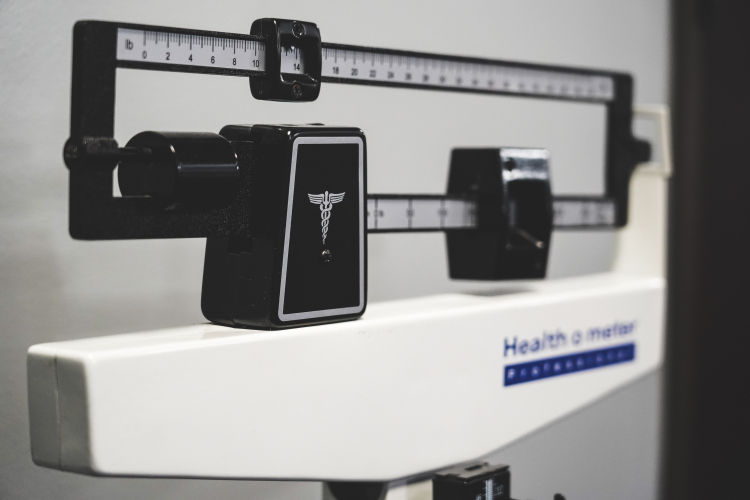Embrace 'Confinement Curves' Over Society's 'Bikini Body'

Every year, as we near the month of May and the temperatures rise, you begin to see the average person shed their many layers of clothing for their bathing suits. But what we often disregard is that with the excitement for the warm summer sun, comes the anxiety of having your body 'beach ready'. The pressure of fitting into society's mold of what a 'bikini body' looks like leaves many girls nervous for the summer months. AUP student Maria Karkour stated, "If you’re too covered up, you’re persecuted by the authorities. If you’re were wearing too little, you're persecuted by others' opinions." Let's admit it, if it were not for COVID-19, we would be flocking to gyms to pay for those expensive monthly memberships, only to use them a couple of times before the summer.
As a result of the pandemic, everyone found themselves cooped up in their homes, curled up on the couch, often with a bowl of crisps an arms reach away. Who could blame you? Your world had been turned upside down and we were all finding our own ways of coping with the changes. Scrolling through social media on a daily basis could make anyone feel bad about themselves as we were inundated with posts of various Instagram influencers telling us about their detailed morning routines consisting of 5k runs, high protein smoothies, and HIIT workouts.
While many were trying their best to have "abs in two weeks", some of us were building up the energy to simply get out of bed in the morning. It is no surprise that COVID-19 and the numerous lockdowns have had a drastic effect on our mental and physical health. So my question is, should our body standards, and expectations for the summer remain the same after experiencing the most intense year of our lives?
Image credit: Unsplash/JeshootsThe pandemic and its restrictions led people around the world to change their lifestyles overnight. We went from classrooms and conference rooms to Teams meetings in the living room. Coping with the many changes, the losses of loved ones, or recuperating from the virus itself took a toll on our minds and bodies. Many during this time turned to food for comfort. We were feeding our souls and focusing more on eating things that made us feel better. High anxiety, high stress, and disrupted sleeping patterns also meant higher amounts of junk food consumed. A study conducted on 5,000 consumers by EIT Food and a consortium of European universities, led by Aarhus University in Denmark, found that participants in the UK reported a 29% rise in consuming both convenience foods and alcohol, and led the way in snacking with a reported 27% increase during the lockdowns.
The stress of not being able to work and the anxiety of not knowing what might happen in the future increased significantly. Dr. Emily Flanigan explains that a spike in stress levels can lead to poor sleep, which can cause people to exercise less, consume more junk foods, and then gain weight, and so on. So weight gain during this period of uncertainty is not only normal but sometimes necessary as a coping mechanism.
Image credit: Unsplash/nrdAs the summer of 2021 grows closer and closer with more countries making rapid recoveries from the pandemic with higher vaccine rollouts, and lower cases, people around the world are hoping to spend their summer days on vacation, on the beach, or in the sun. However, this time around it will be those confinement curves on display and not society's mangled concept of the 'bikini body'. One can't possibly expect this pandemic to not have had an effect on how they look. People boast about coming out of this period as a 'new person' with a "changed perspective" so is it really fair to have the same expectation for your body that you did two summers ago?
The phrase 'bikini body' is an oppressive concept that seeks to squeeze women into the mold of perfection. Originally, the phrase referred to one with long legs, a small waist, a full butt, perky breasts, no body hair, no cellulite, and no stretch marks. Whether or not this ideal woman and the phrase that came with her was crafted by five men in a lab is a mystery to me. However, it set the benchmark for women around the world and their bodies in bikinis.
Maria Karkour, a student at AUP explains how she dreads summer because of the clothing choices she has to make. She laughs as she states, "I don't like summer in general because you have to wear shorts. I choose to be hot, and wear pants in the summer." She goes on to explain the societal pressures of having a "perfect" body and how it is a lose-lose situation. It was interesting to note that Karkour actually liked COVID-19 for the fact that there was now, "less stress on the body being perfect as it was not the highest priority."
Another student, Isabella Bosco explained how despite COVID-19 and the lockdowns, she would truly feel "better" if she, "lost a little weight before the summer." However, she did place emphasis on the fact that she wanted to do so in order to, "feel more healthy." The two girls were also in complete agreement over the fact that they often found themselves stress eating during the pandemic, or sometimes, even eating to cure the boredom of being locked up all day.
Image credit: Unsplash/Diana PolekhinaIn conclusion, don't be so hard on yourself. Your body has experienced a period of massive change, so think of yourself as a little caterpillar having gone through the process of metamorphosis, now coming out as a beautiful butterfly having spent nearly a year in your cocoon, ready to take on the summer sun in your 'bikini body', because at the end of the day a 'bikini body' is simply a body that fits in a bikini.










